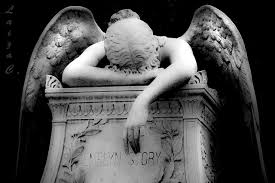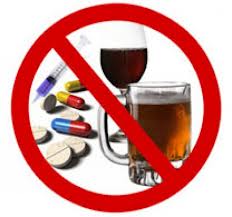Recently the incredible Marie Abanga, a friend of mine, joked that my WordPress tags section could make a blog post of its own. And she’s right! A lot is going on, which is reflected in the tags. Too much is going on.
I hesitated to write about these recent events for fear that I’ll hurt someone’s feelings, but all the parties involved don’t read my blog.
Just before I attended the Catamaran Writers Conference on August 12, my husband received alarming news. His close family member had been admitted to the hospital for severe jaundice/dehydration. I immediately knew the cause for this ER admission: full-blown alcoholism.
Selfish me. My first thought was, “Don’t let him die now. I want to go to this fucking conference! I worked so hard to get this scholarship.”
Add to that, I have issues with alcoholism. Mine are deep-seated, festering pustules full of rage and resentment. My father was an alcoholic. The red wine he guzzled each night turned him into someone I no longer recognized; someone who I feared for good reason. I believe my Dad was desperately trying to crush out the demons caused by his bipolar disorder and the abuse he suffered as a child.
As a result of seeing how alcohol affected my father and our family, I despised alcohol for most of my life. At 37 I received a postpartum bipolar disorder diagnosis. My mental illness was treatment-resistant and at my wit’s end I became an alcoholic, finally understanding to some extent why my father drank.
Red wine and tequila became my daily meals. “Unhappy Meals” without clowns, if you will. I knew I had a serious problem when I switched from evening to daytime drinking, as early as 10:00 a.m. On Monday through Friday I filled a large coffee tumbler with red wine and downed every drop, hating the taste but wanting the buzz of oblivion. I was passively suicidal during those years.
My former psychiatrist, the one who talked behind my back to Craig about how I was such a frustrating patient because no medication was working, the one who complained to me about his hatred of his ex-wife and his myriad problems with his four children, the one who was put on probation for overprescribing meds, wasn’t much help.
Ever since I started drinking heavily, I’ve considered myself an alcoholic. On November 18th, 2013 I gave up alcohol cold-turkey. That was the day I took my first pink-colored Parnate pill, a monoamine oxidase inhibitor (MAOI) in addition to lithium.
Parnate is known as the “last-resort” medication for bipolar depression; it’s old-school and has been used since the 1950’s. Parnate has been shown to be most effective when used with lithium. There are rules when taking the older MAOI’s which consist of dietary restrictions and no alcohol if you want to avoid having a stroke.
I didn’t want to stroke out, so I stopped the booze.
Parnate and lithium gave me my life back. The dietary sacrifices, the giving up the booze were 1000% worth it.
It occurs to me that in writing about alcoholism, I’ll come across as a hypocrite. Even so, I’m willing to share with you about how flawed I am – I learn from reading about other flawed souls, so I hope this might help one or two of you in some way.
My current psychiatrist Dr. D. has been such a useful sounding board. His specialty is addiction medicine. I didn’t know he had a specialty when I decided to work with him, but of all the specialties he could have, this one would prove to be extremely helpful.
Ironically I learned about Dr. D. at my neighborhood liquor store during a chat with the owner. I was there posting a flyer promoting my “Women with Mood Disorders” support group, and the owner started telling me about his wife who had OCD. He said, “I’ve found her a great shrink!” As we spoke surrounded by vodka, the owner added emphatically, “Dr. D. helped my wife so much!” and he handed me the psychiatrist’s business card. Even though I still met with my misogynistic psychiatrist, something told me to take that card.
When I met with Dr. D yesterday for my routine appointment, I told him what was happening with my hospitalized family member. He had plenty of insights. Something that stuck in my mind was this: he explained that if both parents are alcoholic, then each child has a 70% chance of becoming alcoholic. I was clueless about that statistic, but it made complete sense. I’m relieved I no longer drink nor does my husband. Our kids have suffered enough hellish shit with my bipolar disorder; they certainly don’t need two alcoholics “raising” them.
Alcoholism, like bipolar disorder, runs in families. My mother-in-law died from it, and I witnessed her death firsthand. I was manic at the time, and I was strangely numb to the grief surrounding me. The hospice team told me how “great” I was dealing with my husband’s grief. It was all a ruse. My mania took away 99% of death’s sting; I only felt bad when I saw my usually stoic husband break down in sobs.
When I was alone in her hospital room, I told my mother-in-law that it was okay to die. Giving someone permission to die was not something I’d have been able to do when I was my usual, deeply depressed self. She passed away shortly after I spoke with her.
Today I’m not manic. I’m raw – I’m susceptible to others’ grief, especially when I sleep with the person who’s grieving. And I’m scared.
I don’t do death “well”. Does anyone?
I’m always worried that I’ll relapse if presented with an extremely tough situation. I haven’t “overcome” bipolar. I’m not a fucking warrior. Far the fuck from it.
At least I’m a realist. I examine my personal history, I see what happened, and because of what occurred it makes sense why I fear death so much now.
Here are three more examples of my “getting an F in Death”:
When my father died, I was so devastated that I became suicidal. I asked to be hospitalized and Craig threw the girls into the car and drove me to the Community Hospital of the Monterey Peninsula (CHOMP). While there I begged for my first round of ECT. They gave it to me. ECT helped immensely to mitigate my acute suicidal impulses. While I no longer wished to kill myself, I was still severely depressed.
I missed my father’s memorial service, which is probably the biggest regret of my life apart from all the traumatic, crazy shit I pulled on my little girls and husband during my bipolar episodes.
When my grandmother died a gruesome death from lung cancer, I went into a clinical depression for which I should have been diagnosed/medicated, but no one recognized it at the time.
This happened was when I was 27, ten years before my bipolar diagnosis. When Granny died I felt frozen, hopeless, inhuman. I took time off from my job working as a certified personal trainer and flew with my family to New York. We buried her in upstate New York.
While in New York I remained frozen. I didn’t want to go explore New York City with my family. They didn’t seem nearly as fucked up as I was. I wanted to disappear
When I had my fifteen-year-old American Eskimo Shera euthanized in my arms, I plummeted into an evil darkness within a day.
Granted, these people who died were hugely significant in my life. My beloved dog Shera was a family member too – she went to my wedding and accompanied us on our honeymoon. She loved me through so many of my depressed-filled years.
What I’m about to write is harsh. Please don’t go off on me in the comments. This particular death by alcoholism enrages me. Our family member has been drinking heavily for years. I don’t know the specifics of the nuclear family dynamics – what I mean by that is I’m ignorant whether or not anyone tried to do an intervention. I have never been close to them. None of them visited/called/contacted me during my 7 hospitalizations.
The last thing I want to do is visit this jaundiced, bloated, tubed-up, dying person in the hospital. I have hospital PTSD from my seven psych unit hospitalizations. Hospital PTSD is an honest-to-God condition, and unless you’ve suffered in this way, it’s hard, if not impossible to understand it. My therapist believes I have it, yet she implored to me during our last session that I need to work through it in this particular case. She suggested that I visit the family member to support my husband, to say goodbye and to be ethical. I’m forcing myself to do it.
If I was still drinking, I’d drink to get through such a thing. If I still took benzodiazepines, I’d have a few. Or smoke pot if that would help me – it doesn’t do a thing except make me tired and relieve nausea. All I can do to get through this hospital visit is to try anxiety-reduction techniques, use some Rescue Remedy, and inhale essential oils such as lavender & orange, two of my favorites.
And keep the visit short.
At the Catamaran Conference the renowned poet Ellen Bass read a poem called “Relax” that resonated with me deeply in light of what has just happened in our family. Bass, the co-author along with Laura Davis of the bestselling The Courage to Heal, wrote something so real. I loved how she recited “Relax” to us in the campus chapel – her rather deadpan tone did her poem justice. You can hear Ellen Bass recite it at the link listed below.
I joked with a Jewish classmate sitting next to me that the poem should be called “Jewish” instead. (We Jews worry about everything….)
At almost 2000 words, and having been all over the place, I wonder if any of you are still reading this post. It’s more like a novella, but sometimes I can’t stick to the much-more-readable length of 200-400 words. Please forgive me. Brevity is the soul of wit, but I’m not feeling so witty today.
Love to each of you,
Dyane
Visit this link to hear Ellen Bass read “Relax”:
http://www.ellenbass.com/books/like-a-beggar/relax/
Relax
Bad things are going to happen.
Your tomatoes will grow a fungus
and your cat will get run over.
Someone will leave the bag with the ice cream
melting in the car and throw
your blue cashmere sweater in the drier.
Your husband will sleep
with a girl your daughter’s age, her breasts spilling
out of her blouse. Or your wife
will remember she’s a lesbian
and leave you for the woman next door. The other cat–
the one you never really liked–will contract a disease
that requires you to pry open its feverish mouth
every four hours. Your parents will die.
No matter how many vitamins you take,
how much Pilates, you’ll lose your keys,
your hair and your memory. If your daughter
doesn’t plug her heart
into every live socket she passes,
you’ll come home to find your son has emptied
the refrigerator, dragged it to the curb,
and called the used appliance store for a pick up–drug money.
There’s a Buddhist story of a woman chased by a tiger.
When she comes to a cliff, she sees a sturdy vine
and climbs half way down. But there’s also a tiger below.
And two mice–one white, one black–scurry out
and begin to gnaw at the vine. At this point
she notices a wild strawberry growing from a crevice.
She looks up, down, at the mice.
Then she eats the strawberry.
So here’s the view, the breeze, the pulse
in your throat. Your wallet will be stolen, you’ll get fat,
slip on the bathroom tiles of a foreign hotel
and crack your hip. You’ll be lonely.
Oh taste how sweet and tart
the red juice is, how the tiny seeds
crunch between your teeth.




You must be logged in to post a comment.